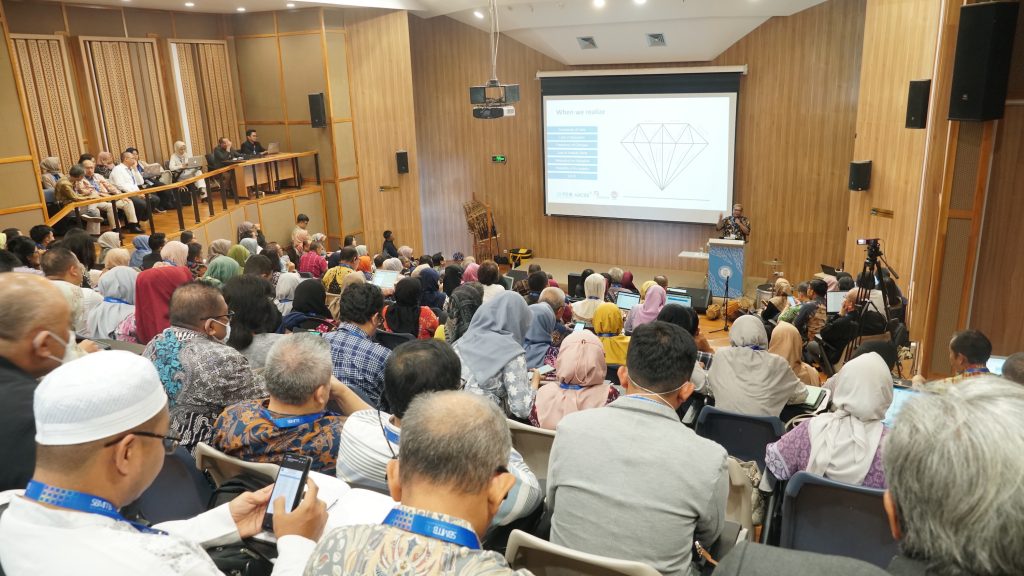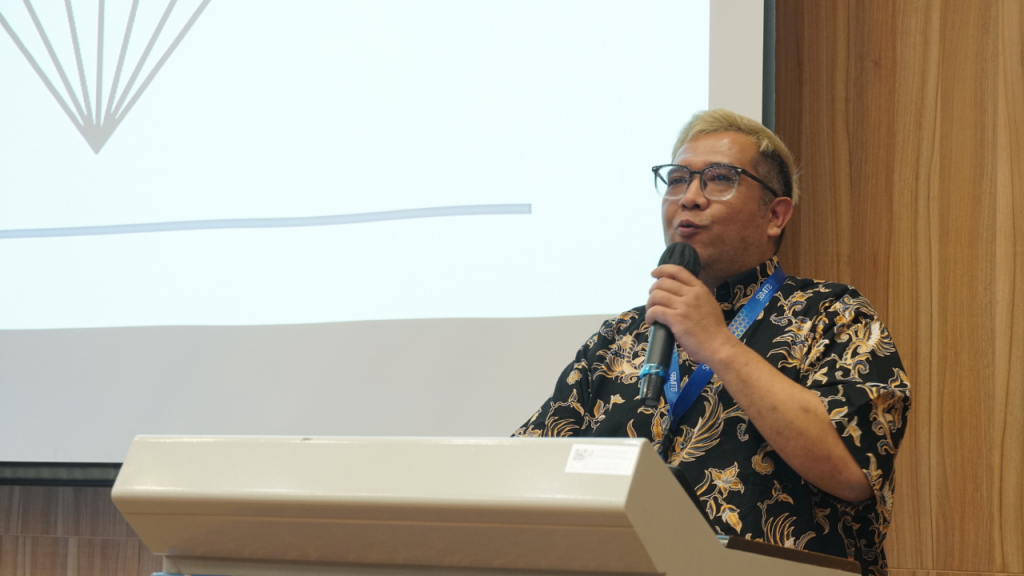Education is widely believed as a crucial way for personal development. This sentiment is underscored by the growing public enthusiasm for pursuing higher education year after year. In response to this belief, every educational institution should ensure the provision of high-quality education, facilitating progress and advancement in every learning experience.
According to the Chair of the Quality Assurance and Accreditation Committee/Quality Assurance Task Force of the SBM ITB, Achmad Ghazali, S.T, M.A.B, PhD, quality assurance of educational institutions is needed to meet people’s expectations. For this reason, he said, SBM ITB adopts quality assurance standards that are on par with international campuses, namely the AACSB standard.
Achmad Ghazali explained the quality assurance of education when presented in a Sharing Session entitled “Developing Quality Assurance For The Future: The Past, Current and Future of AACSB Journey”, which was held by SBM ITB at Labtex XIX – SBM ITB, Bandung (9-10/8 ). Lecturers from business schools throughout Indonesia attended the event.
“We are lucky because Indonesian people believe a person can develop through education. Thus, we must have a standard of quality learning. Don’t let people be disappointed and reluctant to continue their education at universities because of the learning available via YouTube,” he said.
The key to maintaining the quality of education lies in monitoring the operational performance of its resources, especially in human resources. Various methods and criteria are needed to make the teaching and learning process effective and benefit each student. Therefore, integrating data is an integral part of the education system.
Achmad drew a comparison between the awareness of data importance and the understanding of how a diamond’s facets are polished to create a brilliant sparkle. Similarly, within an effective education system, educational institutions must hone various criteria that support students, enabling them to make a meaningful impact on their surroundings.
Nonetheless, educational institutions must be aware of the potential pitfalls in handling data. According to Achmad, the challenge with data collection lies in determining the optimal balance of the collected and analyzed data points. A deficit or excess of criteria can lead to confusion for the quality assurance team. Insufficient data hampers the ability to make well-informed decisions, while an overabundance of data renders the system both ineffective and inefficient.
Furthermore, another issue that can potentially emerge within the education system is the lack of integration in data collection. Recorded data often ends up being stored in isolated databases, leading to redundancy and disposal of previously entered information.
Achmad highlights the significance of cultivating a mindset of awareness, care, and collaboration regarding the centralization of data. This involves establishing codification policies that are agreeable to all stakeholders. Such an approach is essential to prevent operational failures and ensure mutual benefits for all parties involved.






